7, December 2020
Southern Cameroons Crisis: The regional election is a non-event 0
From time immemorial, elections are designed to bring about change in a country or to pacify a population or an opposition that has been calling for change, but in Cameroon, elections have remained a tool of dominance by the ruling party, the Cameroon People’s Democratic Movement (CPDM) also known as the crime syndicate made in the same mold as the Sicilian Mafia.
For many decades, the CPDM has won every election in Cameroon not through the ballot boxes but through massive fraud orchestrated well before the polling day.
The party writes the election rules, it is a participant in the game and it serves as the jury and judge after the exercise. The country’s election commission is replete with ruling party officials and the constitutional council that is supposed to mediate in the event of any foul play has been a tool in the hands of the ruling party designed to ensure that members of the ruling party emerge victorious.
In the event of any post-electoral contests or demonstrations, the government releases the military like bees on the protesters which sometimes results in the killing of hundreds and maiming of thousands of Cameroonians.
After the 2018 presidential election, the opposition party leader who clearly won the election, Professor Maurice Kamto, has been the subject of government harassment. He has either been hauled to jail, threatened with death or put on house arrest for long periods of time.
The country’s hastily written anti-terrorism law of 2014, is the legal instrument the dictatorial Yaounde regime has been using to frustrate or jail its opponents.
Since the last presidential election, the country has been in the grip of an unrelenting political crisis that is threatening to strangulate the economy and bring down a regime that is clearly on its last leg.
Many analysts have been hoping that the imbecile, corrupt, decaying and inefficient government in the country’s capital will see the writing on the wall and on the basis of that, will make some concessions and rewrite a constitution that clearly belongs to the ash heap of history.
Strangely, the ruling party has continued with its unpalatable comedy of errors and arrogance that has already resulted in many preventable deaths, especially in the country’s two English-speaking regions where an active insurgency has put the country in the spotlight for all the wrong reasons.
The regional elections held in the country on Sunday, December 7, 2020, have simply underscored that the government is unrepentant and unwilling to mend its ways so that peace, stability and economic prosperity can return to a country that was once touted as an oasis of peace in a desert of political chaos due to the many civil wars that have dogged its neighbors over the last four decades.
Sunday’s elections, falsely dubbed as regional elections, were won even before they took place. The elections do not require the participation of the entire population. Only municipal councilors are required to vote and 95% of the councils are held by the ruling party because opposition parties had boycotted municipal elections on the grounds that the rules were flawed and designed to favor the ruling crime syndicate that has been in power for four decades with no real results to show for its existence.
In the country’s two English-speaking regions, the elections were viewed as a non-event. The country’s English-speaking Diaspora, in collaboration with the USA-based Interim Government, had called for ghost towns in a bit to foil the government’s outlandish and diabolic plan.
The entire Southern Cameroons has been like a real ghost town over the last three days with the population staying at home.
In many towns, even the ruling party councilors were scared of stepping out to vote as separatist fighters are still making the laws in that part of the country.
Separatists, who have been battling the Yaoundé government for almost four years, had issued a stern warning to any councilors who would dare to vote against the will of the people. In their view, no such elections should take place in the region.
In Southern Cameroons, the ruling CPDM has been outlawed and anybody seen militating for the ruling party is considered an enabler and must be dealt with according to the rules of the USA- based Interim Government headed by interim president Dabney Yerima who is sitting in for President Julius Ayuk Tabe who has been in the dirty dungeons of East Cameroon for almost three years following an illegal kidnapping jointly organized by Cameroon and Nigeria.
In the weeks leading to the elections, separatists had clearly informed the population and government officials that the death penalty decreed three years ago in Washington DC was still standing and this was rapidly followed by the killing of three army soldiers in Ndian Division, whence hails the country’s ineffective and emasculated Prime Minister, Dion Ngute.
Similarly, the separatists also informed the Cameroon Concord News Group via a voice note that more killings had been scheduled, adding that they were keeping their eyes on traditional rulers and municipal councilors who are having political intercourse with the corrupt CPDM.
According to the separatists, it has been alleged that some hungry Southern Cameroonians are in cahoots with the corrupt regime to bring down the revolution. The separatists have vowed to take out any person or persons who have been identified as promoting the government’s campaign of corruption and marginalization.
Top on the list provided to the Cameroon Concord News Group are: former Prime Minister, Peter Mafany Musonge; Senate Vice-President, George Tabetando; Prime Minister Dion Ngute; former Prime Minister Yang Philemon; the ever rambling and hungry former minister of the environment, Elvis Ngole Ngole; the inefficient and corrupt primary education minister, Nalova Lyonga Egbe; and all the senators and members of parliament from Southern Cameroons, most of whom are currently in exile in Yaoundé.
The separatists have vowed that theirs will be the kingdom of death and they will stop at nothing to enforce the law.
The separatists have also urged all the chiefs and fons who have fled the two English-speaking regions of the country not to return, as they are wanted dead or alive.
They are charged with enabling the enemy and the punishment in Southern Cameroons for such an offense is the death penalty. There is no commutation of such penalties in the newly minted “country.”
Sunday’s elections have only made things worse for Southern Cameroonian politicians in particular and the country in general. As the government doubles down on its approach to governance, so too are the separatists who have vowed to cleanse the region of any blacklegs who have sold their souls to the devil.
The separatists are more angered by the new ruling party’s approach where Paul Biya, the corrupt head of state’s pictures is being posted all over the place.
The 87-year-old and ailing Biya is bedridden and with the Coronavirus spreading like wildfire in Western countries, the government cannot fly him out of the country.
The separatists say that they will not tolerate the government’s “photocracy”, a system of governance where is a dying man’s picture keeps on representing him in events.
While Sunday’s elections have ended, Cameroonians are very sure that the political crisis will continue to hurt the economy and blight their lives.
Biya’s greed and inefficiency have brought untold hardship and death to Cameroonians.
His politics and policies are hurting the country and with his departure imminent, it is obvious that the country is heading to a post-Biya disaster which can only be preempted by the international community.
By Soter Tarh Agbaw-Ebai in Mulheim an der Ruhr
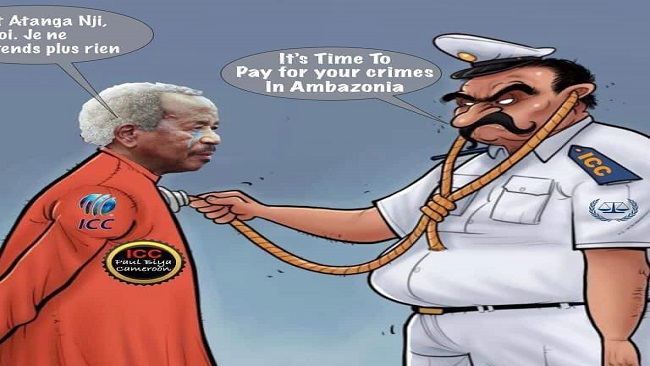
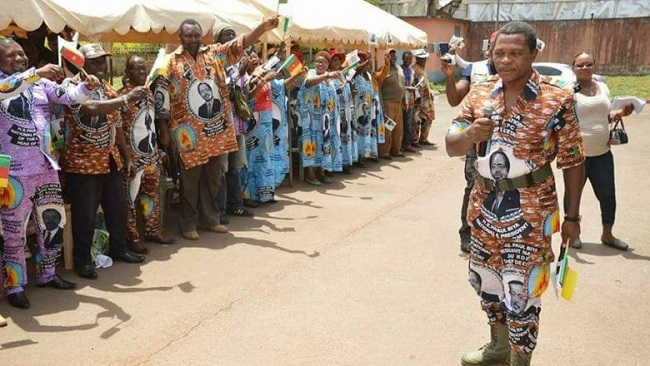

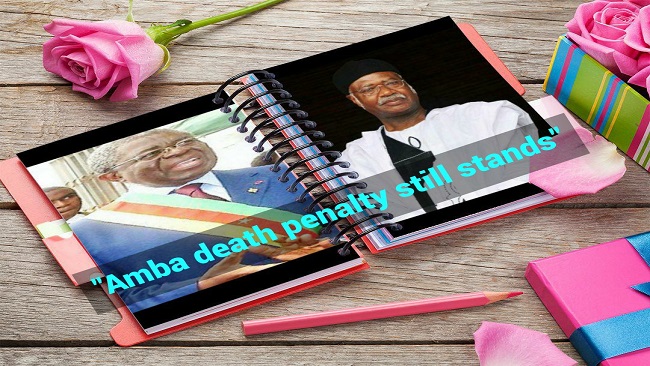
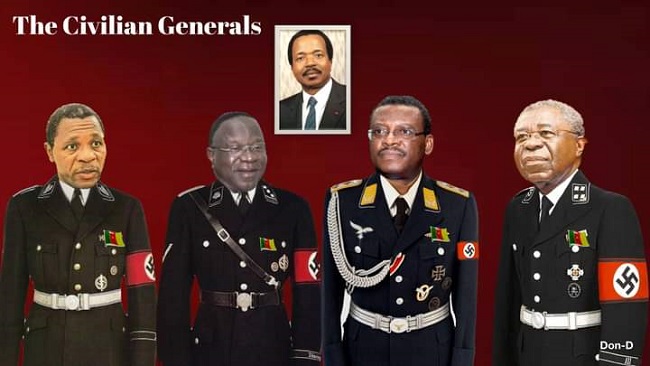
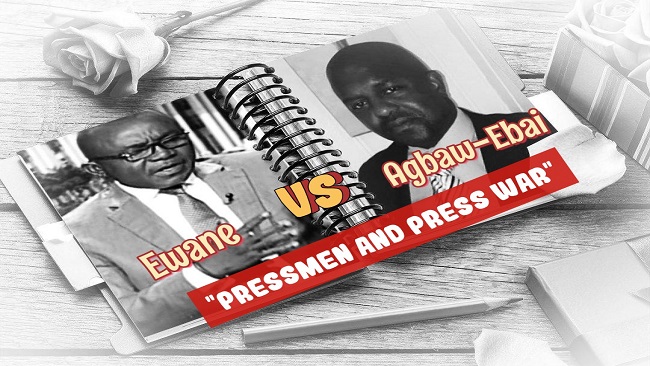
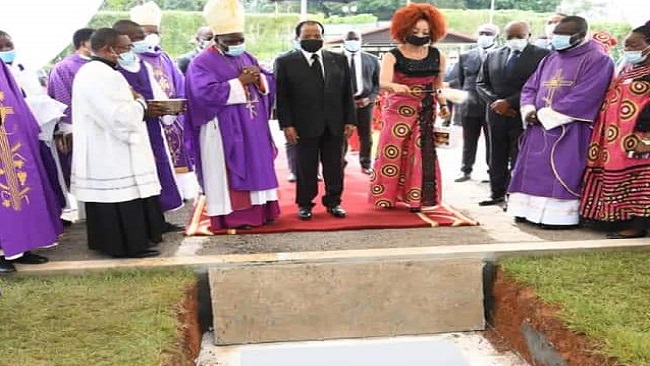














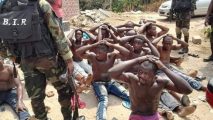





8, December 2020
Biya on his last journey of many dangers 0
87 year-old President Paul Biya is reportedly pursuing his dangerous plans to get rid of ministers who show themselves too ready to join the race to succeed him. Biya and his consortium of ruling CPDM crime syndicates have adopted a governing policy described by Cameroon Concord News Group as “photocracy”, a system of governance where a dying man’s picture keeps on representing him in events.
Biya and his gang are sending strong messages to his would-be-successors as he uses the Special Criminal Court to end their political careers. The list is long including ex-prime minister Chief Inoni Ephraim and former defense minister Edgar Alain Mebe Ngo’o.
Rivals manoeuvre to succeed Biya recently intensified in Yaoundé and several allies of the Cameroonian president are now vying for the leadership of the state and the ruling CPDM party. We understand that many of these so-called French Cameroun political elites are trying to steal a march on their rivals. But they are wary of being too open about their intentions, as the president has been quick in the past to sideline any man or woman within his criminal structure seen as too ambitious.
President Paul Biya’s succession is presently on life support! Not only is the president’s own health failing but so too that of his constitutionally designated replacements namely- Speaker of the National Assembly, Cavaye Djibril and leader of the House of Senate Marcel Niat.
Relatives of the powerful are being targeted by the Special Criminal Court. Establishing this court was President Biya’s way of saving himself the embarrassment of being humiliated during his perennial trips abroad as the President of the most corrupt countries in the world. This ranking of the country as the most corrupt or one of the most corrupt countries had a potential to hamper President Biya’s personal pecuniary interests far from the borders of Cameroon. There was therefore a personal interest need to establish the court. Another personal interest need was to avail himself of a legal tool under his direct control to consolidate absolute power, blackmail potential rebels and competitors within the system and to stifle any form of institutional opposition. He perceived the court as a tool with which to whitewash his more than thirty years of corrupt governance and the rape of the economy.
Recently investigators at the Special Criminal Court in Yaoundé have been taking an interest in close relatives of political figures. Depicting the Special Criminal Court established to prosecute alleged corrupt government officials and the several Alibabas responsible for pilfering from the public treasury as the President’s court is no misnomer. We call it the President’s court because it is one instrument of power through which the President is reining in on perceived opponents from within his CPDM power conduit. An attribute of a genuine court is the fairness of the trial proceedings in cases which are brought before the court for trial. It is not the number of convictions entered against accused. A court is legitimate and recognized as such because of its exercise of judicial, executive, legislative and administrative independence. A court that is independent must be accessible to all citizens after all, is equality before the law, not a constitutionally protected value? The Special Criminal Court is lacking in these attributes of impartiality, judicial independence and accessibility. It is perceived more as the President’s Court than a Court of Justice.
Biya’s war against the people of Southern Cameroon-Ambazonia is now unwinnable! At the heart of the crisis, which started in 2016, was a strike by teachers and lawyers, in the English-speaking regions of Cameroon. The professionals, supported by citizens of their areas, protested the unfair use of the French language and unjustified appointments of French speakers in their territories. By 2017, the situation had spiralled out of control and developed into a fully-fledged separatist war. Both government forces and separatists are now bogged down in a conflict, that observers say, can only be resolved through dialogue.
By Soter Tarh Agbaw-Ebai